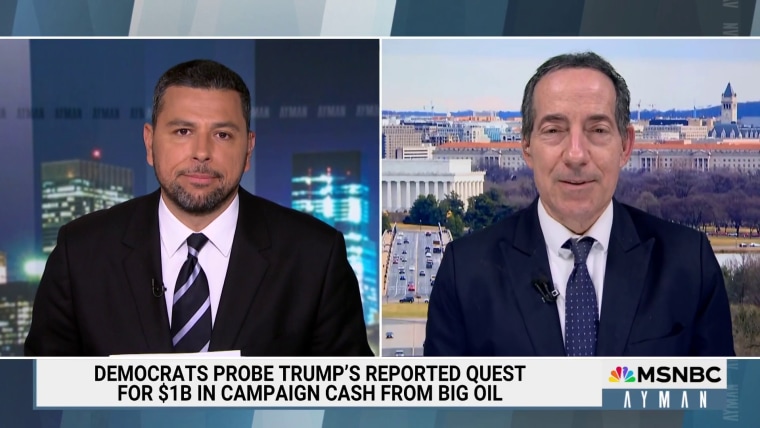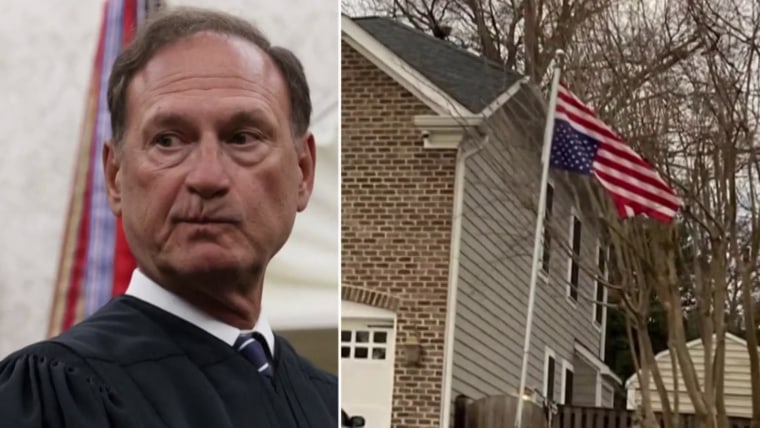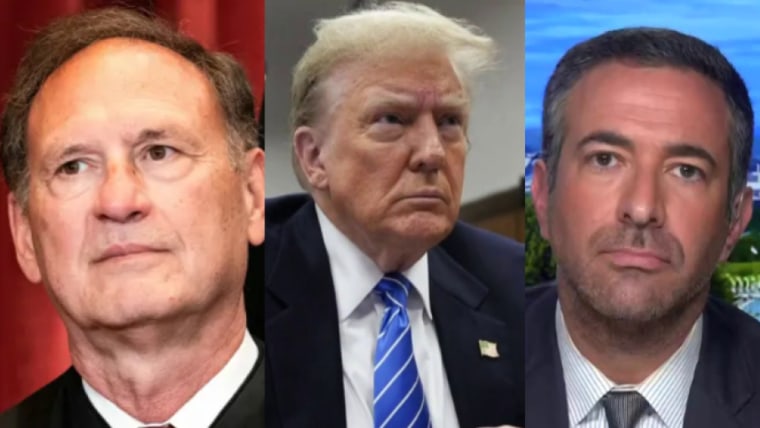On Thursday, The New York Times reported that 11 days after the Jan. 6 insurrection and three days before Joe Biden’s inauguration, an upside-down flag was seen flying outside Supreme Court Justice Samuel Alito’s home. This act is usually a symbol of distress, but after the 2020 election it became a form of political protest for many Trump supporters to signal their belief that the vote had been stolen from the soon-to-be former president.
Alito’s explanation for the upside-down flag on his property has been, how shall we say, creative. But it’s also befitting for a public servant who clearly believes he has no responsibility to the public.
Surely, Alito understands that some Americans could reasonably draw the impression that he and his wife acted in an overtly political manner.
First, the justice blamed his wife. “I had no involvement whatsoever in the flying of the flag,” Alito said in a statement to the Times that was the marital equivalent of throwing his better half under fellow Justice Clarence Thomas’ luxury RV. “It was briefly placed by Mrs. Alito in response to a neighbor’s use of objectionable and personally insulting language on yard signs.”
Then, in a longer explanation to Fox News’ Shannon Bream, Alito put some more flesh on the bone. He claimed that an angry spat with anti-Trump neighbors left his wife “so distraught” that she “hung the flag upside down for a very ‘short period of time.’”
For the sake of argument, let’s give Alito the benefit of the doubt. Let’s assume that while the justice claims some of his neighbors are “very political,” he and his wife are politically agnostic. Let’s also assume that three days before Biden’s inauguration — and in light of Trump’s claims of election theft — the Alitos, by chance, seized upon the upside-down flag as a symbolic response to their neighbors’ unneighborly-like behavior and were unaware of its use by Trump supporters to signal their anger over the 2020 election.

Even if we accept this admittedly unlikely series of events, Alito surely knows now the significance of the upside-down flag and its symbolic importance to Trump and his supporters. And it wasn’t as if the flag hung upside briefly, as he says. That claim is directly contradicted by his neighbors, who say it was fluttering on his front lawn for several days. Surely, Alito understands that some Americans could reasonably draw the impression that he and his wife acted in an overtly political manner, casting doubt on his impartiality as a Supreme Court justice. Even Sen. Lindsay Graham, R-S.C., called it “not good judgment.” Moreover, the Supreme Court has very clear and stringent rules for its staff on even the appearance of impartiality or political partisanship. Supreme Court employees are forbidden from any political activity, including attaching bumper stickers to their cars or displaying signs that suggest a political view.
So here’s the question for Alito: why not apologize? Even if Alito believes he did nothing wrong, why not simply say he’s sorry if people drew the wrong impression from the upside-down flag?
The answer is not difficult to discern: He does not care.
Even a minimum concession to his critics is too much for Alito.
We saw similarly petulant behavior from Alito last year ahead of a ProPublica story about his acceptance of an all-expenses-paid fishing trip with a conservative donor who had significant business before the Supreme Court. Alito pre-empted the piece by publishing an op-ed in The Wall Street Journal that haughtily denied any wrongdoing and, as was the case in the current imbroglio, refused to acknowledge any wrongdoing on his part.
Alito could have said, then and now, that he was sorry if anyone was offended — a tried-and-true non-apology apology. But even a minimum concession to his critics is too much for Alito. His sense of entitlement and victimization is so extreme that he believes he doesn’t owe anyone any explanation for behavior that suggests he is not an neutral arbiter of justice.
If Alito were concerned about the legitimacy of the Court and its perception among the American people, he would recuse himself from current cases that deal directly with the Jan. 6 insurrection. These include the prosecution of those arrested for their actions that day and former President Trump’s claims of immunity for his role in supporting an attempted electoral coup. But there is little indication that Alito has any intention of doing so.

It never seems to occur to Alito that as a public servant blessed with a lifetime appointment to the highest court in the land, he has any responsibility to the public he allegedly serves.
If Americans raise questions about Alito’s potential biases because of the upside-down flag incident or, even worse, question the legitimacy of a Supreme Court that seems to operate in a partisan manner and whose members flagrantly violate basic ethics rules or prohibitions on political speech, that’s their problem, not his. He has no obligation to reassure them. He owes them nothing.
Alito’s child-like petulance would almost be amusing if it wasn’t so horribly toxic. He and his fellow justices write decisions that have life-changing consequences for the American people — like the Dobbs ruling he wrote two years ago stripping away reproductive health rights from millions of American women. With that kind of awesome power comes enormous responsibility — and a basic obligation to assure Americans that justice is being meted out fairly, based not on partisan whim but on a dispassionate reading of the law.
Alito has clearly failed the test, and he could not care less.

